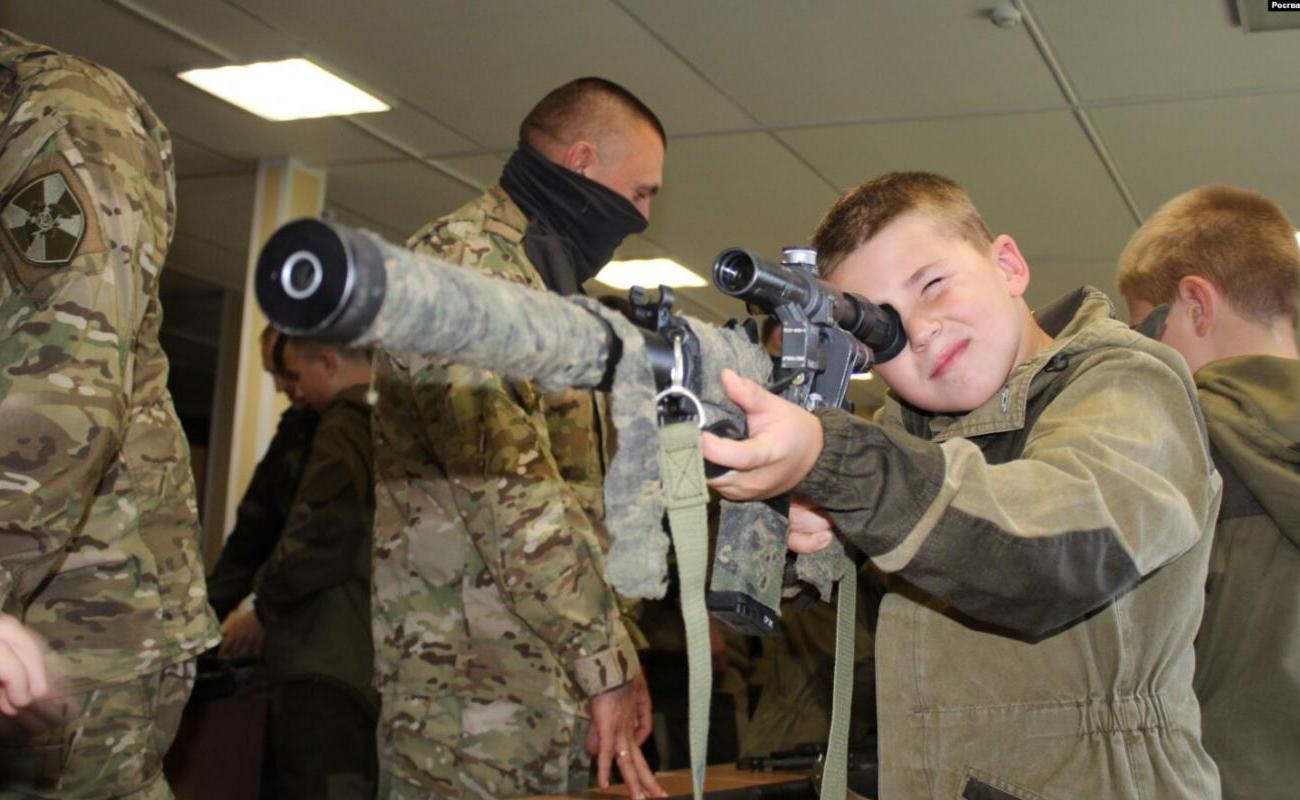“Putin’s Hitler-Jugend.” Russia builds tomorrow’s army with stolen Ukrainian children, Yale lab reveals

Just six days before the full-scale invasion of Ukraine in 2022, almost 1,000 children from occupied Donetsk and Luhansk institutions were told they were going on an “excursion” or an “adventure” to Russia.
These actions were justified as an “evacuation” from an alleged imminent threat from Ukrainian forces – a narrative Russia has repeatedly used to legitimize its aggression against Ukraine. However, this wasn’t a humanitarian evacuation – it was the beginning of a systematic state-sponsored program to erase Ukrainian identity through forced deportation and adoption.
Ukrainian authorities have identified nearly 20,000 children who have been forcibly taken from occupied territories to Russia, though the real numbers are likely much higher. Many deportations remain undocumented or concealed, making it impossible to assess the true scale of these forced transfers.
Behind these numbers are stories of individual trauma.
Vika (name changed for security) faced an impossible choice: accept placement with a Russian family or be separated from her younger siblings.
Lyubov only discovered she could not return to Ukraine after arriving at her new Russian “home.” She thought this was all temporary.
Gleb initially clung to hopes of returning to Ukraine. Eventually, he resigned himself to his new reality, saying he had no one to return to.
Masha, separated from her friends after being taken from a Luhansk orphanage, retreated into isolation and withdrawal.
All these stories were uncovered by the Yale Humanitarian Research Lab (HRL), which conducted a months-long investigation and identified 314 documented cases of Ukrainian children forcibly relocated to Russia. The researchers believe this number represents only a fraction of the total cases.
The children were dispersed across 21 Russian regions. While the investigation primarily documented cases from Donetsk (80.4%) and Luhansk Oblasts, evidence suggests this practice extends far beyond these regions.
The investigation, which analyzed satellite imagery, flight records, Russian government documents, and social media posts, reveals sophisticated state machinery involving Putin’s presidential fleet, military bases, and a network of officials from local administrators to the Kremlin itself.
What emerges is not a story of humanitarian aid but a carefully orchestrated program of cultural genocide in slow motion: children as young as two were stripped of their Ukrainian citizenship, given new Russian identities, and subjected to “re-education” programs designed to make them “good Russian soldiers.”
These children aren’t just being moved – they’re being reprogrammed to forget who they are.
This report adds substantial evidence to the International Criminal Court’s case against Vladimir Putin and his Children’s Rights Commissioner Maria Lvova-Belova, who already face arrest warrants for the unlawful deportation of Ukrainian children. But it goes further, exposing how Russia systematically changed its laws, funded databases, and created bureaucratic procedures to separate Ukrainian children from their heritage permanently.
The findings are particularly crucial now, as time works against reunification efforts – young children’s memories fade, documentation disappears, and those who’ve reached adulthood in Russia face increasing complications in contemplating return to Ukraine.
Putin personally commands child deportation machine
The findings reveal that Vladimir Putin personally directed the program of transferring Ukrainian children from its inception, orchestrating coordination between the Kremlin, the United Russia party, and occupation authorities in so-called Donetsk and Luhansk People’s Republics (DNR and LNR).
At the heart of this operation is Maria Lvova-Belova, Putin’s chosen executor for the entire program. Her involvement was comprehensive, ranging from coordinating with occupation authorities to personally accompanying children on military transport flights and conducting citizenship ceremonies.
The scale of the operation became evident during the siege of Mariupol in 2022, when 31 Ukrainian children, aged 7 to 17, were taken from basements and transported on a plane from Putin’s presidential fleet. In a symbolic gesture demonstrating her dedication to the program, Lvova-Belova adopted a 15-year-old boy from this group.
